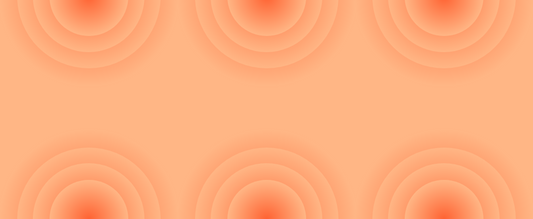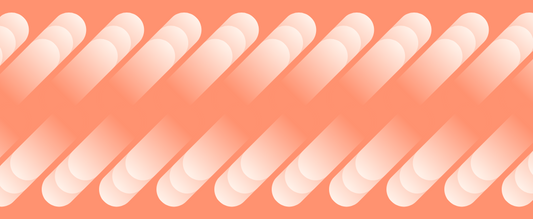ADHD, Menstruation and PMDD: Getting to Know Your Cycle
Read time 6 mins
PMDD - Pre Menstrual Dysphoric Disorder - and ADHD - Attention Deficit Hyperactivity Disorder - have a significant relationship. However, one practice that helps to manage both conditions is menstrual cycle awareness and Menstruality.
Statistics suggest that around 25% of women who menstruate experience moderate to severe PMS, while 5-8% of all women who menstruate are diagnosed with PMDD (1). But as it is, like ADHD, largely undiagnosed, we suspect that figure is significantly higher.
PMDD, is currently defined as being caused by sensitivity to changes in sex hormones that occurs after ovulation. Estrogen and progesterone levels can affect the brain chemicals and signals that control mood. Typically, symptoms commence during the luteal phase of the menstrual cycle and can differ among individuals, encompassing mood fluctuations, anxiety, self-injury, and thoughts of suicide.
Generally, these symptoms alleviate once the menstrual period begins.
A 2021 study (2) showed that ADHD and PMDD are linked. Women with ADHD are significantly more likely to have PMDD than the general population. This is because they are more sensitive to hormonal fluctuations, specifically estrogen levels.
As a result, they can experience more intense ADHD symptoms as well as intense physical and mood symptoms.
Managing through Menstruality:
As a Menstruality coach I teach people that their menstrual cycle is not just a biological process but something that affects us on a psychological and psycho-spiritual level too.
The extreme symptoms that occur to people suffering with PMDD are actually our cycles shouting to us to take notice of them. For example, if you are struggling with anxiety and finding that patterns are happening every month where you just want to completely escape your life - break up with a partner or quit your job or get on a one-way flight - you might be feeling totally lost and freaked out. But in Menstruality terms, it all makes total sense.
You see, if we consider that every menstruation has a 28 (ish) day cycle, that means there is a start and an end point to each cycle. Menstruation is the first day of the period and then when you get to the end of that cycle - it sounds really dramatic but there's a sort of ‘death moment’ that's happening because that cycle is now ending.
Feelings of despair, detachment or depression can arise at this point in the cycle, particularly for anybody who is a high sensitive person, has trauma in their system or any sort of deep emotional experiences that they might be holding on to. If you're a high sensitive person you are going to feel a lot more than somebody else and that shows up for your cycle in this extreme emotion.
Crucially, there is no awareness - or permission - to be this way in the society we live in. In fact, instead of support or nurturing for those with a highly sensitive nature, there is mockery and jokes about ‘being hormonal’ and ‘on the blob’, etc. Indeed, the denial of this collectively has had a devastating impact on girls' and women’s mental health.
By practising menstrual cycle awareness, you can build more harmony with your cycle. A greater understanding of your body and your menstrual period will help you to flourish.
But how do you start? It all starts with education - and this is where my free class comes in!
Watch now here.
Cycle tracking really is the first and immediate thing you can do. And this is more than knowing when you are due on.
Grab a journal (or just do it on the Notes app in your phone). Write down every day how you feel in terms of your energy levels, mood, and cravings. Include anything that has triggered you, (what was it and how did you cope?), or anything fun you did too.
This simple practice can be eye-opening. You'll begin to predict your low-energy days and plan accordingly, scheduling time for rest or solo activities that replenish you, rather than commitments that drain you.
The next step is to learn about the inner seasons of the cycle. Tuning into them can be beneficial for symptom relief, as well as overall wellbeing, productivity, creativity and self esteem.
I have personally seen the amazing changes that happen when women start using menstrual maps and inner season charts. This helps them to align their lifestyle with their natural cycles. Instead of just focusing on the luteal phase, where symptoms like premenstrual syndrome and PMDD usually show up, it's important to look at each phase individually and as a whole.
For instance, how a woman spends her period can impact the rest of her cycle. This is even more impactful if she doesn't take time to rest and release emotions during that time. It's all about understanding and working with our bodies' natural rhythms to promote overall well-being.
Maintaining equilibrium throughout the entire menstrual cycle aligns with the principles of traditional Chinese medicine. Menstruality was developed by Alexandra Pope and Sjanie Hugo Wurlitzer. It has helped hundreds of thousands of women across the world to cope with their menstrual suffering.
It is a straightforward and easy to understand way to help women with their menstrual health.
I think Menstruality is effective for PMDD because it addresses the underlying causes of the premenstrual phase in the menstrual cycle.
For centuries, this stage of the menstrual cycle has been surrounded by shame and ridicule from society, much like menopause. This phase can involve challenges and painful symptoms. However, it is still an impactful, important part of a woman’s life.
This is not simply sensitivity. Women's bodies are strong communicators, and we must make sure we listen.
About the Author
Lisa Higgins is the founder of Red Rebel FM, an online radio station that supports emerging women+ DJs and raises awareness of PMDD. The station is linked to The Red Rebel Collective, which is an organisation providing empowering education, workshops and events promoting pride in being hormonal AF.
Follow her at @redrebelfm and @lisahigginsrebel
If you have experienced PMDD, or are interested in learning more about hormones and ADHD, check out our blog from Madison Ashworth (@PMDDsucks) 'Exploring the Connection Between ADHD and PMDD'.

Navigating Seasonal Shifts - How to Protect Your Wellbeing
Read Time 4.5 mins

The Role of Reflection in Navigating ADHD Challenges
Read Time 4.5 mins

Creating Calm Amongst The Holiday Chaos: Your Neurodivergent S...
Read time 5 mins








